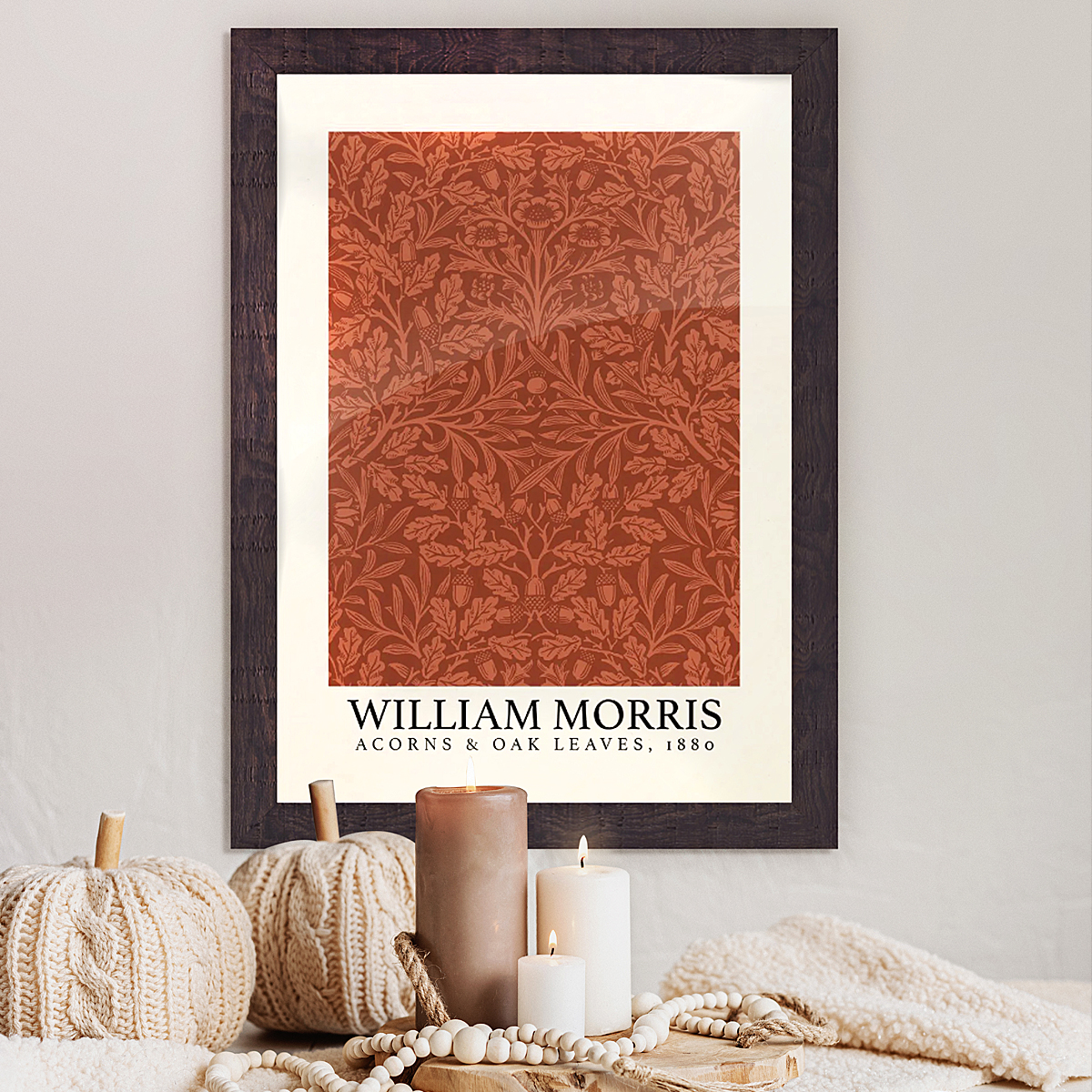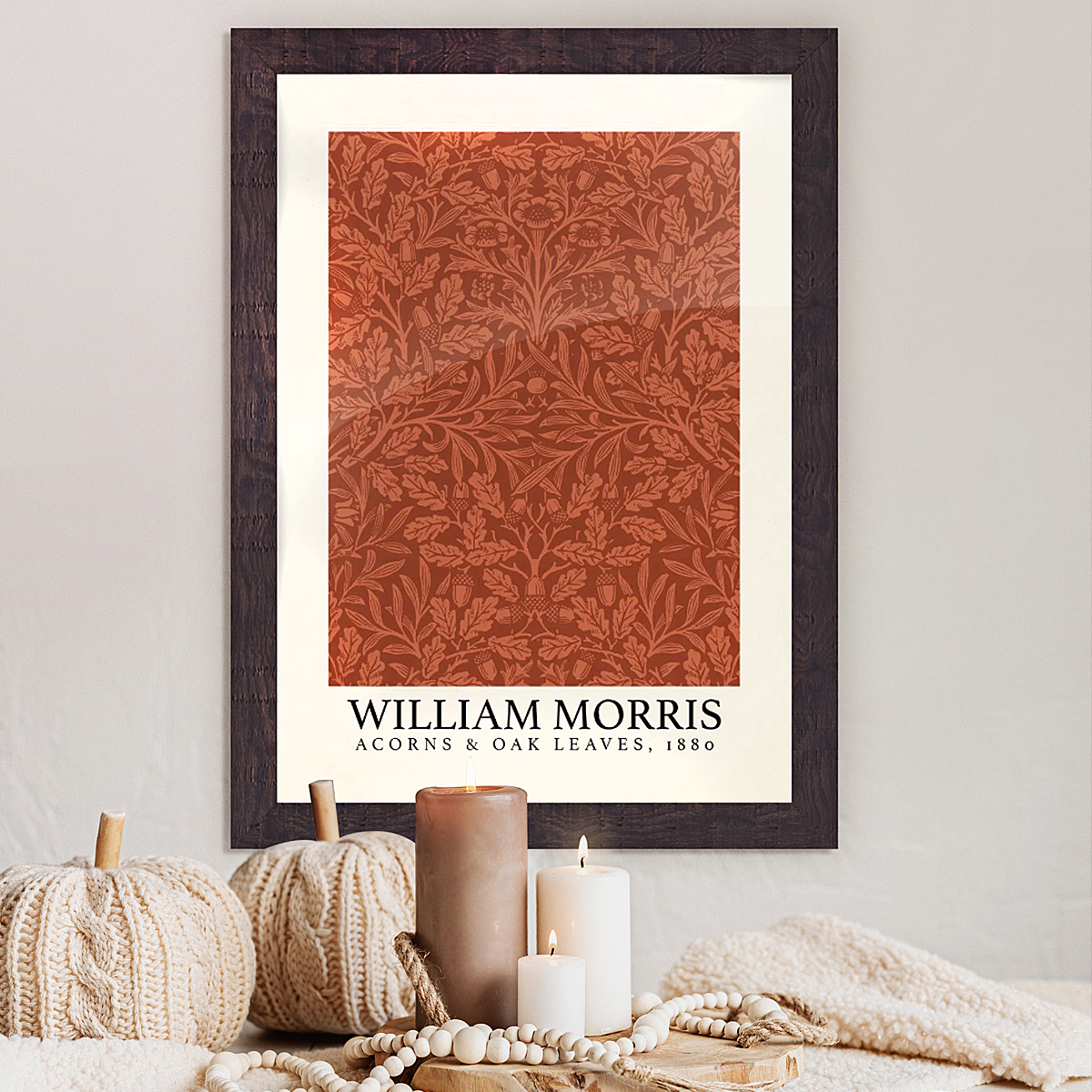In the annals of design history, few names shine as brightly as that of William Morris. His legacy endures in the warp and weft of fabric, the brushstrokes on wallpaper, and the ethos of countless designers who follow in his footsteps. As a luminary figure of the Arts and Crafts Movement, Morris championed the beauty of handcrafted goods against the encroaching tide of industrialisation, leaving an indelible mark on the design world. Today, on Lithobee's Inspiration Blog, we delve into the life of William Morris and explore the enduring impact of his work, which continues to inspire our selection of art prints, including some of Morris's own masterpieces.

Morris's career was a tapestry of diverse creative pursuits, including poetry, textile design, and social activism. However, it is his contributions to design, particularly patterns and wallpapers, for which he is most celebrated. Rejecting the mass-produced goods of the Victorian era, Morris looked to the past for inspiration, drawing on medieval, Gothic, and nature-inspired motifs. His designs were revolutionary, imbuing homes and public spaces with a sense of beauty and harmony previously reserved for the elite.
The essence of Morris's design philosophy was simple: to bring beauty into the everyday lives of people through handcrafted and aesthetically pleasing objects. This ethos resonated deeply at a time when industrialisation threatened to erode the quality and individuality of artisanal goods. Morris's commitment to craftsmanship and quality not only set a new standard for design but also laid the groundwork for the modernist and sustainable design movements that followed.

Moreover, Morris's impact is not confined to the realm of physical objects. His visionary approach to design as a means of social change, his belief in the democratization of beauty, and his commitment to environmental sustainability are more relevant today than ever. In an era where the conversation around design increasingly includes sustainability and ethical manufacturing, Morris's work serves as a guiding light, reminding us of the value of craftsmanship, the importance of beauty, and the potential of design to improve society.
At Lithobee, we are proud to carry forward William Morris's legacy through our selection of art prints that celebrate his timeless designs. Each piece is a testament to Morris's genius, showcasing the intricate patterns and vibrant colours that have made his work beloved by generations. Whether you are a long-time admirer of Morris or new to his oeuvre, we invite you to explore his designs and be inspired by the enduring beauty and relevance of his work.
William Morris was not just a designer; he was a visionary who understood the profound impact that beauty and craftsmanship could have on the world. His legacy is a reminder that design is not merely about aesthetics but about creating a better, more beautiful world for all. As we continue to navigate the challenges of the 21st century, Morris's work and philosophy remain a beacon of inspiration, urging us to value the handmade, cherish the environment, and always strive for excellence in design.



